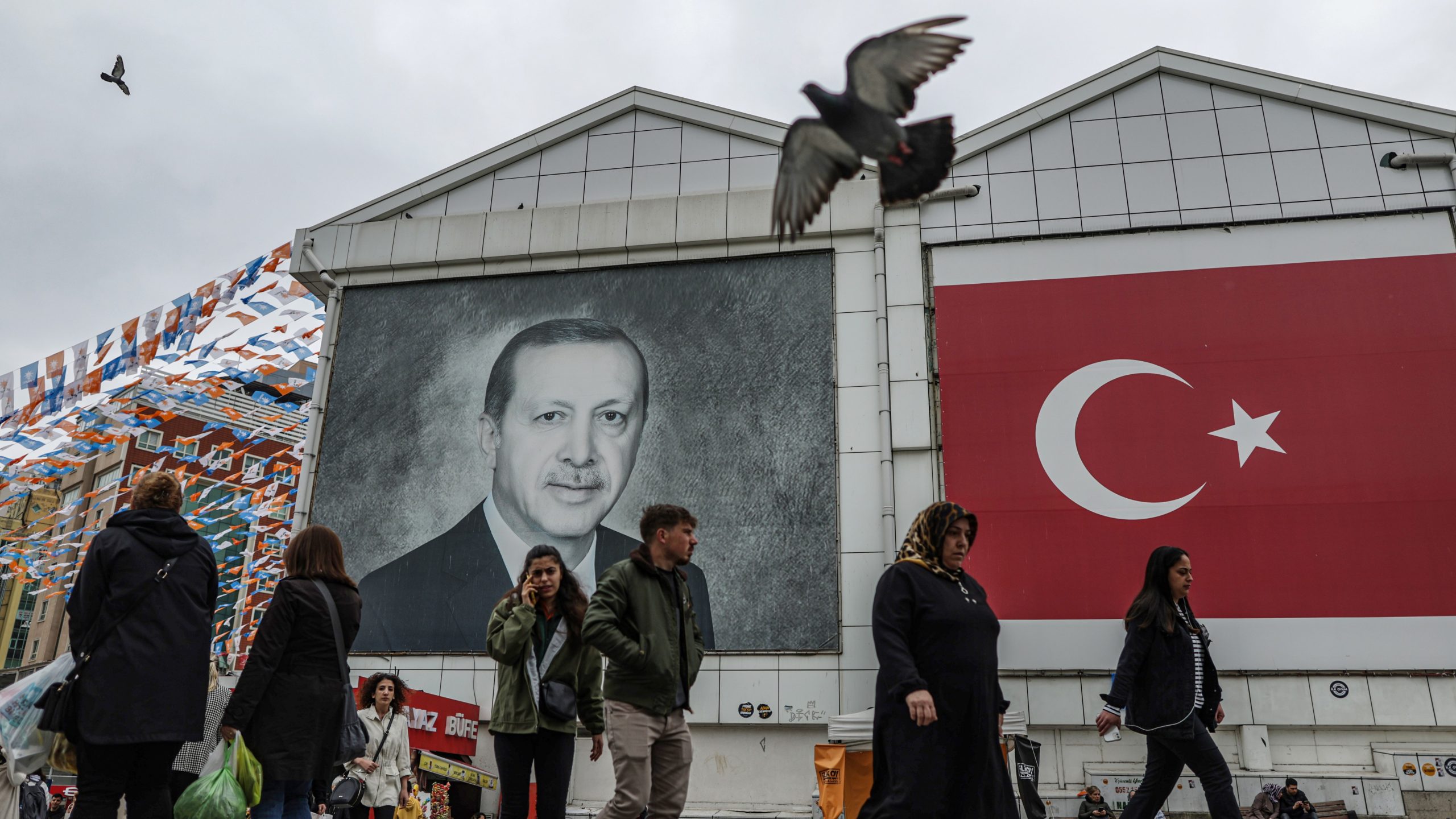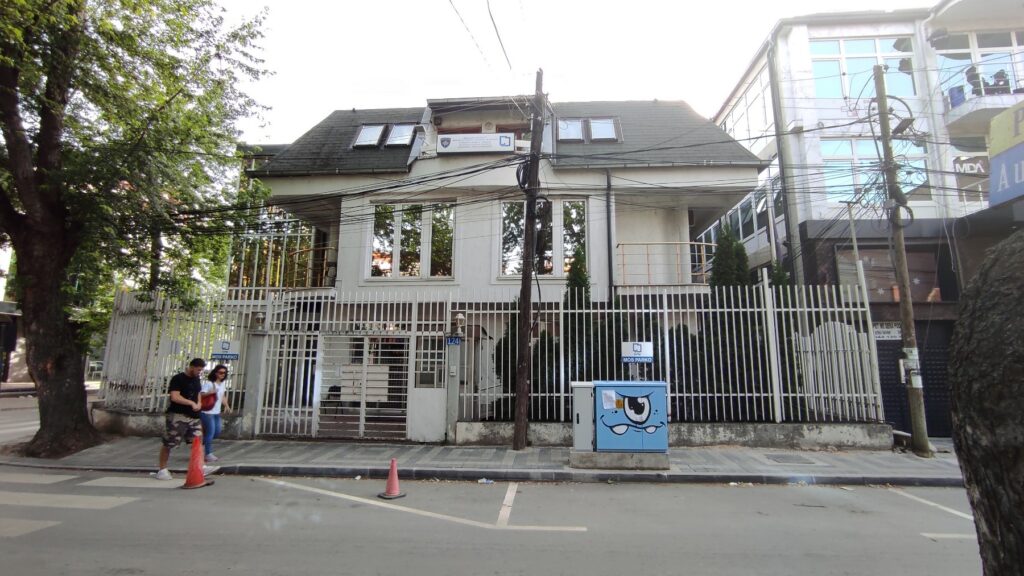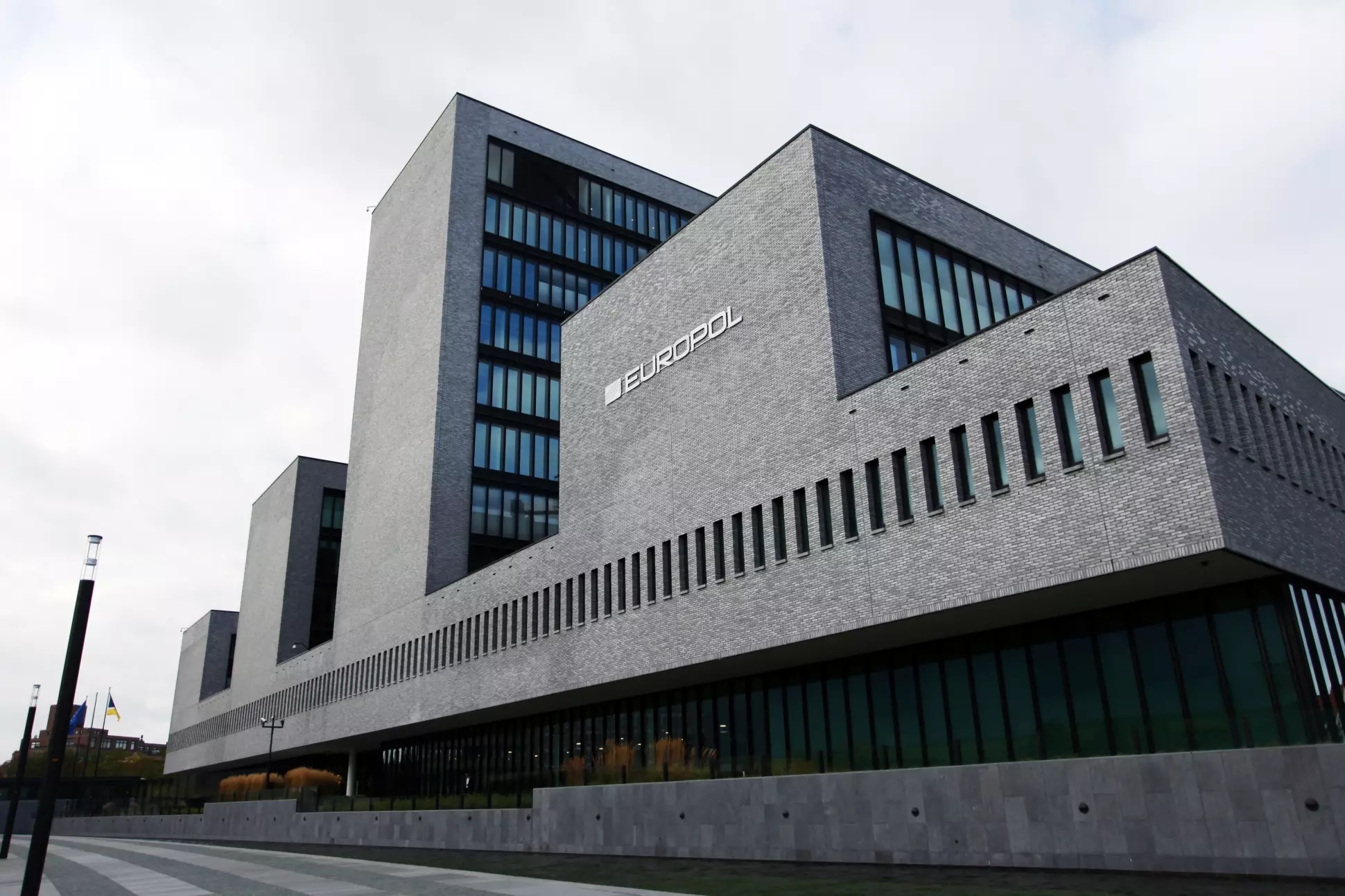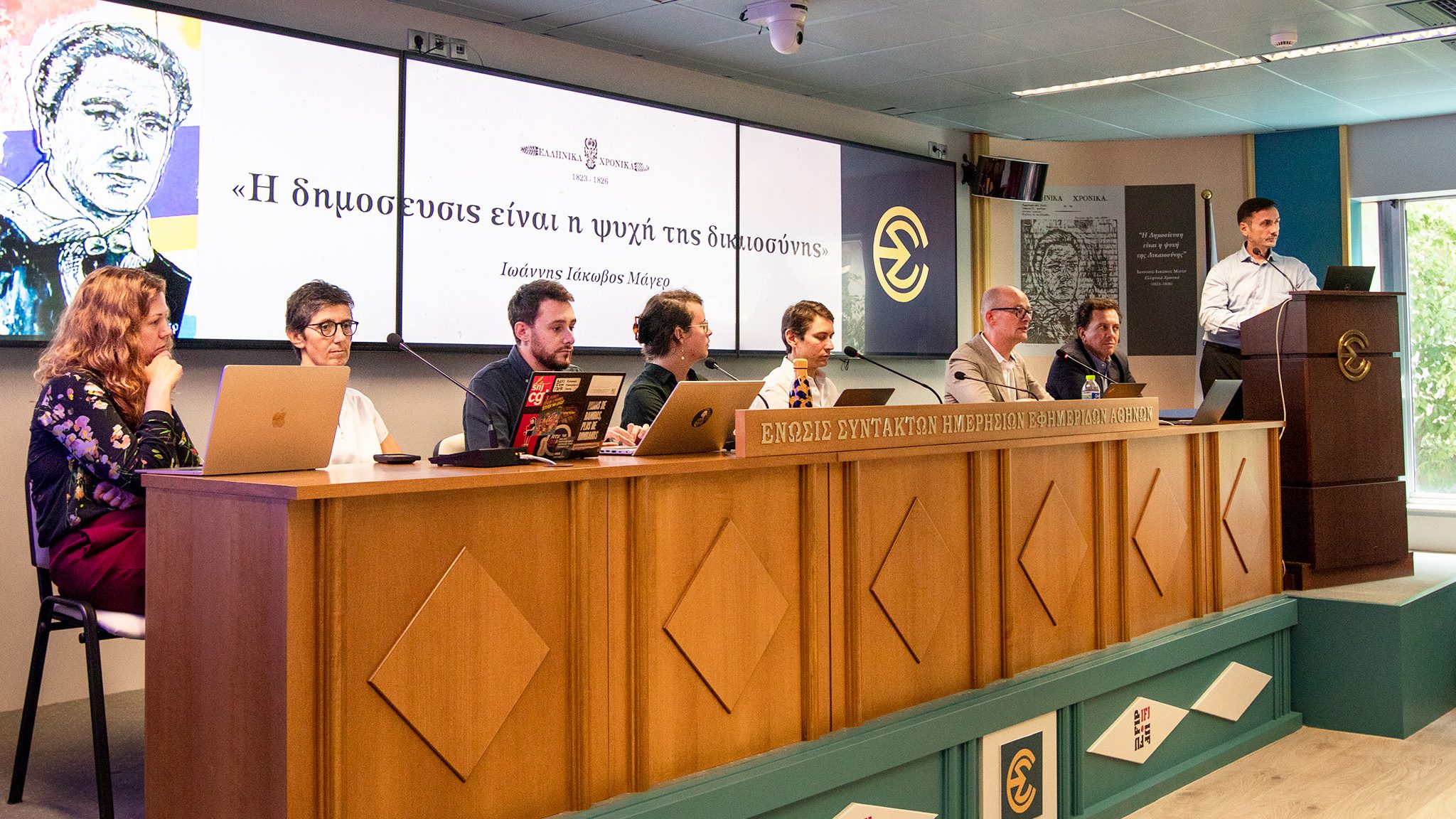In the intricate web of the digital realm, the Balkans in September experienced a series of incidents involving religious figures, contentious content and the ensuing digital outrage.
In Bosnia and Herzegovina, an alarming incident involving domestic violence and the subsequent online backlash prompted the controversial comments of a Catholic priest. Meanwhile, in Romania, the cancellation of screenings about an Orthodox priest sparked debate, while in North Macedonia a priest made unverified claims about LGBT-themed content, inciting hate speech.
In Montenegro, journalist Balša Knežević found himself entangled in legal troubles due to online content targeting the Serbian Orthodox Church. Journalists in Serbia faced a convergence of physical threats and online abuse, putting their work and safety further at risk.
Albanian online media outlet JOQ meanwhile unearthed a series of disturbing incidents involving minors in the digital space, raising concerns about the safety of the younger generation.
Religious figures trigger digital controversies
In the West Herzegovina Canton of the Federation entity in Bosnia, Denis Buntić, a former handball player, found himself at the centre of allegations of domestic violence. Klara, his wife, reported the incident, sharing a harrowing video capturing a violent altercation. The video revealed her desperate attempts to defend herself against Buntić, all while an infant, just a few months old, was present. As the media extensively covered this disturbing incident and the video went viral, Klara Buntić became the target of a barrage of chauvinistic insults on social media. She was labeled a “bad actress”, criticized for her appearance with derogatory terms like “silicone girl” and unfairly blamed for provoking the incident.
The aftermath of the incident stirred a public outcry. Amid the discussions, Jesuit priest Ike Mandurić entered the fray on Facebook, sparking more controversy with his comments. In his status update, Fr Mandurić downplayed the severity of the incident and expressed discriminatory and chauvinistic opinions. He insinuated that women were primarily at fault and criticized men who showed empathy, stating: “If you have endured such hysteria and whining, I admire you! Boys, kudos to you!” The remark drew widespread condemnation, leading Mandurić to ultimately delete it.

An elderly woman wearing a face mask prays a day before Good Friday in orthodox church in Skopje, Republic of North Macedonia, 16 April 2020. Photo: EPA-EFE/GEORGI LICOVSKI
Beyond Bosnia, the Municipal Cultural Centre in Arad, western Romania, found itself in the midst of a different form of controversy after it cancelled two screenings of a documentary about Fr Arsenie Boca, an Orthodox priest and theologian who has become a symbol for Orthodox pilgrims since his death in 1989. The film’s cancellation, just two days before the screenings, was attributed to alleged threats from individuals claiming they would show up to stop the screening. Meanwhile, in North Macedonia, a prominent Macedonian Orthodox priest made unverified claims about LGBT-themed content in textbooks. This ignited a flurry of reactions and hate speech aimed at the LGBT community in the country.
In Montenegro, recent developments in the digital sphere have brought to light a broader narrative involving journalist Balša Knežević and the online publication Portal Aktuelno. Knežević, the editor-in-chief of the portal, recently faced a police interrogation by order of the Higher State Prosecutor’s Office, VDT. The complaint was made on the grounds of hate speech after the online media called the Serbian Orthodox Church in Montenegro a “Sect of Saint Sava’’ and the “so-called Serbian Orthodox Church’’, insulting numerous believers.
Journalists face physical and online threats in Serbia
In Serbia, journalists are facing a troubling convergence of physical and online threats in the digital age. While their mission is to uncover the truth and report it, they increasingly find themselves at risk, both on the streets and in the virtual world.
Within this realm, journalists who document the world’s events have become unwilling subjects of their own narratives, as physical confrontations disrupt their work. The case of Maja Djuric, a journalist from N1 television, is emblematic of the risks journalists bear in the field. Djuric’s physical assault in Mitrovica, Kosovo, while capturing video material, highlights the perils they encounter, as their pursuit of the truth often puts them on the front lines.

Head of the Serbian government’s Office for Kosovo and Metohija, Marko Djuric, leaves after a press conference in Belgrade, Serbia, 27 March 2018. Photo: EPA-EFE/ANDREJ CUKIC
Simultaneously, digital attacks are on the rise. Accusations and online abuse directed at journalists and media outlets are increasingly common. Television Hepi’s criticism of journalist Brankica Stanković and the Insajder editorial team during a guest appearance by Zoran Ćirjaković underscores the influence of digital platforms in magnifying accusations and insults. These digital threats raise concerns about the integrity and independence of journalism, as journalists find themselves under constant scrutiny.
While social media platforms play a crucial role in shaping public opinion, they can quickly turn into a battleground for journalists, as evidenced by the outpouring of threats and offensive comments in response to a Serbian newspaper’s coverage of the Serbian Orthodox Church’s role in Kosovo. The escalation reached a dangerous point with a threat to “burn down the editorial office” of Danas, underscoring the pressing need to address online safety and hold tech platforms accountable.
As the legal system steps in, Editor-in-Chief Dragoljub Petrovic’s response to threats against Danas newspaper’s editorial team exemplifies the importance of pursuing accountability. The identification and detention of a suspect involved in the threats serve as a beacon of hope for the protection of press freedom in the country.
Disturbing digital space incidents involving minors in Albania
Albanian online media outlet JOQ recently brought to the forefront a series of alarming incidents in the digital sphere. These range from child endangerment to the promotion of narcotics among minors, raising pressing concerns about the digital safety of the younger generation.
JOQ recently brought to light a disturbing case that has ignited outrage within the online community. In one such incident, an Albanian individual shared a TikTok photo of a woman and her infant, with the child depicted with a cigarette in its mouth. Adding fuel to the fire, the photo’s caption brazenly proclaimed: “Big and small gang, we want this to go viral”.
Another troubling incident reported by a concerned citizen has further underscored the perils of social media. JOQ featured a video depicting a minor boy being subjected to a violent assault by his peers. While JOQ did share the video, its primary circulation took place on the Snapchat app, shedding light on the challenges of monitoring and curbing harmful content within various platforms.
In a separate incident, a 31-year-old Albanian citizen from Kurbin found himself in legal jeopardy after broadcasting a live video on TikTok. The video showed the man providing a minor with a cigarette allegedly laced with cannabis. The minor was filmed smoking a cigarette in the company of the adult. The man’s subsequent arrest for “encouraging the use of narcotics” underscores the gravity of promoting harmful behaviours, particularly among impressionable youth.
Bosnia has been covered by Elma Selimovic, Aida Trepanić and Azem Kurtic, Romania by Adina Florea, North Macedonia by Bojan Stojkovski and Goce Trpkovski, Montenegro by Djurdja Radulovic, Albania by Nensi Bogdani, Serbia by Tijana Uzelac and Kalina Simic.

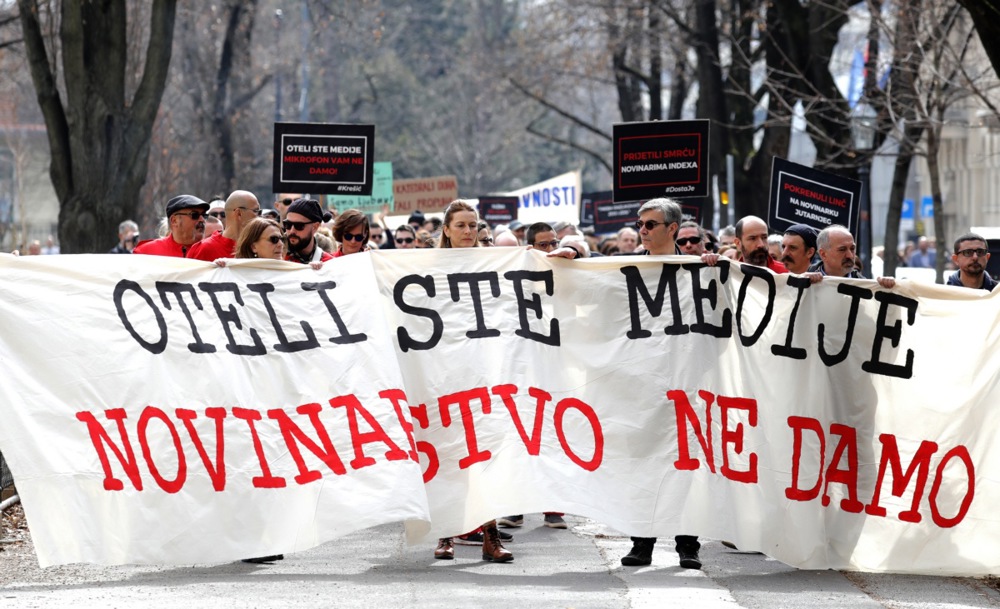
 Last week, a round table on the new law was held at the Croatian Journalists’ Association in Zagreb. Photo: SNH
Last week, a round table on the new law was held at the Croatian Journalists’ Association in Zagreb. Photo: SNH The round table on the new law was attended by a couple of former ministers and several prominent intellectuals. Photo: SNH
The round table on the new law was attended by a couple of former ministers and several prominent intellectuals. Photo: SNH